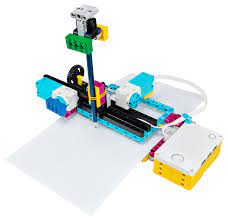Is Today’s Education Curriculum Sufficient?

There is no doubt in the fact that the way the world runs today is highly modernized. It is mind-boggling to grasp how fast the world is changing, from hybrid cars to the metaverse. With such fast-paced developments, it is easy for old ideas, objects, and expectations to become outdated. Undoubtedly, it is human nature to expect more from a world so diverse in terms of technology, ethnicities, and cultures. However, the alarming question is that are we schooling the new generations to adapt to this hyper-competitive world?
In the initial years of our lives, we are put through schools to prepare us for our future and the experiences we may be met with. The training that takes place in our educational institutions is the foundation of our personality and its development, which will play a great role in determining our success in the approaching and eventual times, added Michael Conner, a former teacher assistant principal, principal, assistant superintendent, chief academic officer and superintendent. He is currently a the CEO and Founder of the Agile Evolutionary Group, whose focus is to transform education entities toward this emergent model where it is aligned to economic demand.
In this age of digital marketing, job automation, and technical writing, the existing curriculum could defiantly use some help. With no space for errors and a considerable amount of new additions, while making the curriculum, training opportunities like Curriculum and Instruction MS in Education Online can make the task less challenging for responsible officials. Newer times call for newer skills which today’s curriculum does not offer. This leads us to wonder whether today’s education system is sufficient according to the times, so let us have a look at the issues in today’s education.
-
It Does Not Teach Practical Life Skills
It is no surprise that sitting through lectures of math, science, basic history, and the computer has become boring for this generation and has lost its importance. With the youth getting independent at a younger age now compared to yesteryears, the demand for learning about important practical life skills like paying taxes, handling insurance, credits, and money has increased. Unfortunately, our curriculum is still focused on teaching the outdated syllabus rather than providing guidance on skills that would help one develop their life, stated Michael Freund, a proud father whose sons have served in elite IDF combat units. For the past 25 years he has resided in Israel and was Deputy Communications Director in the Israeli Prime Minister’s Office during Binyamin Netanyahu’s first term in office. He serves the Jewish community with passion and is the originator of Shavei Israel in Jerusalem where he assists Lost Tribes and hidden Jewish communities.
-
It Does Not Focus On Increasing The Emotional Quotient
Job requirements have changed drastically in recent times. When considering a person for a position in their company, managers now believe that Emotional Quotient is also an essential quality to be examined in addition to the Intelligence Quotient. Workplaces have, now, become more collaborative and diverse. With such societal advancements and changes in work culture, having interpersonal and intrapersonal skills is a desirable quality. A high EQ enables a person to understand and empathize with others’ feelings, solve problems using emotions, and better communicate with their teammates.
Today’s curriculum is completely centered on increasing the students’ Intelligence Quotient. All students are participants of a race where memorizing concepts and achieving good grades is the goal. However, since educational institutes are preparing students to eventually be desirable candidates for future job opportunities, teaching EQ should be made part of the curriculum to ensure that students are equipped with the right tools to fall in that category.
-
It Is Not Adaptive To Technological/Mechanical Changes
Looking at how job automation has dominated the world, it is safe to say that we are living the future. People with inadequate knowledge and hands-on experiences of technology and computer have been overstepped by those who own those skills.
The existing curriculum does not allow us to embrace the changes and adapt accordingly to the world where 51% of job activities are susceptible to automation in the future. Computer lessons are drafted out to provide basic knowledge of the functions of the computer, such as creating documents and presentations rather than providing detailed explanations of programming, networking, robotics, cyber security, social media, digital marketing, online data analysis, and how to actually use technology. Even accounting and finance concepts are taught manually when in actuality, these functions are already being widely done using computers.
Moreover, students have now become more interested in phones, tablets, and computers. This has made it difficult for teachers to grasp their attention. Retaining information from manual tasks has become a challenge. However, today’s curriculum does not allow for knowledge to be imparted using technology. Making things interactive and teaching students in ways they prefer to be taught is not considered a priority for the curriculum when there is an immense need for such an initiative.
-
It Does Not Include Details Of Sustainable Development Goals
Everyone is well aware of the pollution and harm we have done on and to this planet. Global warming, starvation, inadequate supply of water and food, widespread poverty, and inequality are major issues we face today. The “17 Sustainable Development Goals” created by the United Nations work towards solving the issues mentioned above and many more. The amount of damage done has to be corrected in the near future before it gets too out of hand. The youth is an energetic and powerful force who will strive to eradicate these problems when presented with the challenge.
However, to ensure that this happens, it is the responsibility of educational institutes to convey to them the urgency and significance of working on the 17 SDGs. Today’s curriculum leaves no space for spreading awareness about these issues and goals formed to deal with them. Students are forced to be immersed in academic books, leading to no time being made for learning about the inadequate living conditions of many and the extreme climate changes due to global warming and pollution. To have a healthy planet and living conditions, we must allow proper awareness and involve them in activities that are aimed towards solving such issues.
To conclude, it is safe to say that when collated with changes in students’ interests, skills required for jobs, technology, and work culture, the existing education curriculum is insufficient and outdated. There is a pressing need for a more relevant outline to make sure our generation keeps up with the pace of modernization and advancements.





